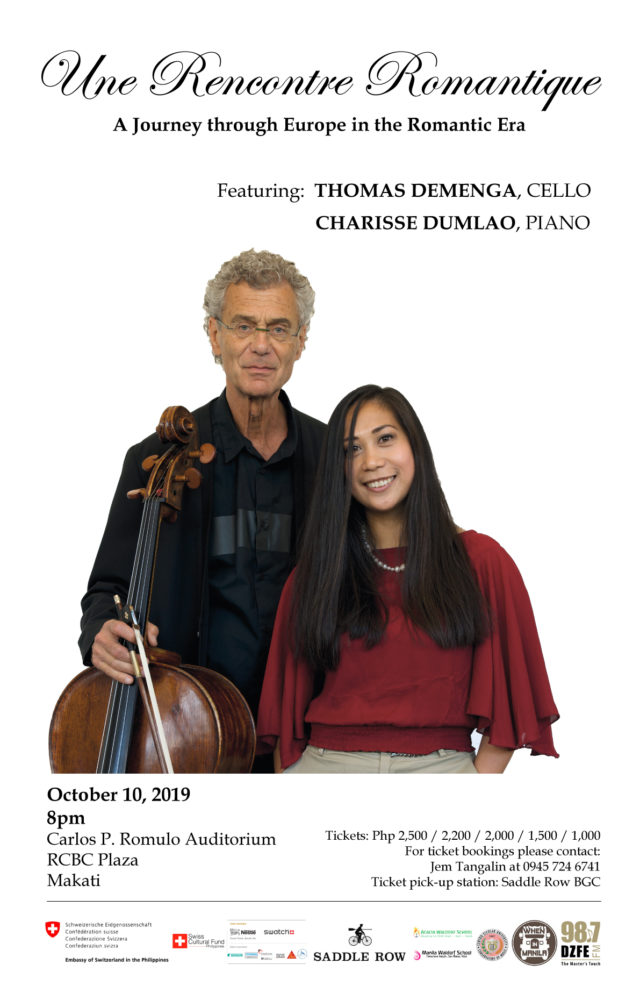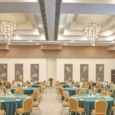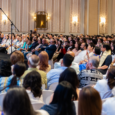By Pablo A. Tariman
Distinguished Swiss cellist Thomas Demenga — a winner of the Naumberg Award — will make his Manila debut Thursday, Oct. 10 ( 8 p.m.) at the Carlos P. Romulo Hall, RCBC in Makati City with Filipino pianist Charisse Dumlao.
Born in Berne Switzerland, Demenga studied with Walter Grimmer, Antonio Janigro, Leonard Rose and Mstislav Rostropovich, Felix Galimir and Robert Mann.
A native of Tacloban City, Dumlao was largely self-taught until she moved to Manila at age 17. She is currently working as a eurythmy pianist and choir repetiteur at the Rudolf Steiner Schule Bern and collaborates with other chamber musicians.
RELATED: We’re Loving this Cello and Piano Cover of Luis Fonsi’s Despacito
The October 10 cello recital program includes Brahms’ Sonata in E minor, Opus 38, Faure’s Après un Rêve, Liszt’s La Lugubre Gondola, Dvorak’s Waldesruh ́ and Rondo in G minor and Schubert’s Sonata in A minor ( Arpeggione).
In an interview with Strad, Demenga said a lot of his training was in the French tradition.
“I started learning at the age of six with Charlotte Georges, who was herself a pupil of Pierre Fournier. Then, when I was 13, I began studying with Walter Grimmer at Berne’s Musikhochschule. He had been a student of Maurice Gendron, whose teaching methods he exactly copied.”
When Demengas was 20, he moved on to study with Antonio Janigro in Stuttgart and Salzburg. “His technique came from Diran Alexanian and involves a thoroughly thought-out, technical fingering system, in which relaxation of the left hand is the key. Janigro’s bowing arm, too, was very relaxed.”
One of the greatest experiences Demenga had was attending the Basel masterclasses with one-time Manila visitor Mstislav Rostropovich. “The six weeks I spent there were like two years of studying with anyone else. He never touched the cello, but accompanied his students from memory at the piano, going into the music with great intensity. He would compare music to normal life: there is one part of the ‘Rococo’ Variations that he equated with being in a rush and having to worry about whether you have forgotten anything.
When he talked about music in that way you immediately knew how to play it. But he never said a thing about technique.”
For inquiries on the recital on October 10, call Jem Tangalin at 0945 724 6741.





